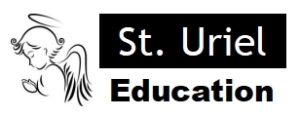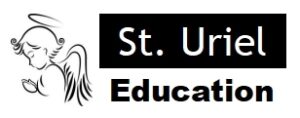Language is amazingly mysterious. It has been the centre of contentious debates dating back to ancient Greek philosophers and even before. One particular topic that has stirred a lot of discussion in linguistic and non-linguistic circles is that of nature vs nurture. That is, whether language is an innate universal capacity humans are born with and are predisposed to automatically acquire or whether it is a learned competence that requires some sort of formal/informal instruction.
Proponents of the innateness hypothesis (a.k.a linguistic nativism) argue that language is acquired because, as Chomsky contended, humans are born equipped with what he called language acquisition device (LAD). LAD is an inherent biological mechanism that enables us to easily acquire and produce language. One strong evidence in favour of innateness hypothesis is the fact that we can understand and produce sentences and utterances we have never heard.
On the other hand, there is the empiricist camp (linguistic empiricism) which views language as a product of learning. To them all forms of knowledge is learned through senses and that “language and grammar are only learned through exposure and accumulated experience. This is also called the “nurture” perspective as opposed to the “nature” perspective (linguistic nativism).” Check out this Wikipedia page for a detailed discussion of these two hypotheses.
Regardless of which hypothesis provides a valid account of the acquisition vs learning problematic, one solid fact remains indisputable: language or more precisely linguistic performance, parole in de Saussure’s terminology, is an exclusive human feat. It is a source of fascination and wonder, a theme which I want to highlight in today’s post through a curated list of wonderful TED Ed talks.
These are educational video lessons that tackle a wide variety of interesting topics related to language learning, from contentious issues in language philosophy to issues related to the syntactic and semantic mechanics of language learning. You can use these talks with your students in class to engage them in discussions about language.
1- Where do new words come from? – Marcel Danesi
“There are over 170,000 words currently in use in the English language. Yet every year, about a thousand new words are added to the Oxford English Dictionary. Where do they come from, and how do they make it into our everyday lives? Marcel Danesi explains how new words enter a language. “
2- The benefits of a bilingual brain – Mia Nacamulli
“It’s obvious that knowing more than one language can make certain things easier — like traveling or watching movies without subtitles. But are there other advantages to having a bilingual (or multilingual) brain? Mia Nacamulli details the three types of bilingual brains and shows how knowing more than one language keeps your brain healthy, complex and actively engaged. “
3- Where do new words come from? – Marcel Danesi
“There are over 170,000 words currently in use in the English language. Yet every year, about a thousand new words are added to the Oxford English Dictionary. Where do they come from, and how do they make it into our everyday lives? Marcel Danesi explains how new words enter a language. “
4- How to use rhetoric to get what you want – Camille A. Langston
“How do you get what you want, using just your words? Aristotle set out to answer exactly that question over two thousand years ago with a treatise on rhetoric. Camille A. Langston describes the fundamentals of deliberative rhetoric and shares some tips for appealing to an audience’s ethos, logos, and pathos in your next speech. “
5- How interpreters juggle two languages at once – Ewandro Magalhaes
“Language is complex, and when abstract or nuanced concepts get lost in translation, the consequences may be catastrophic. Given the complexities of language and cultural exchange, how do these epic miscommunications not happen all the time? Ewandro Magalhaes explains how much of the answer lies with the skill and training of interpreters to overcome language barriers. “
6- The pleasure of poetic pattern – David Silverstein
“Humans are creatures of rhythm and repetition. From our breath to our gait: rhythm is central to our experience, and often brings us pleasure. We can find pleasure in the rhythm of a song, or even the rows of an orchard. Of course, too much repetition can also backfire. David Silverstein describes what poetic repetition is and why it works.”
7- Does grammar matter? – Andreea S. Calude
” It can be hard sometimes, when speaking, to remember all of the grammatical rules that guide us when we’re writing. When is it right to say “the dog and me” and when should it be “the dog and I”? Does it even matter? Andreea S. Calude dives into the age-old argument between linguistic prescriptivists and descriptivists — who have two very different opinions on the matter. “
8- How miscommunication happens (and how to avoid it) – Katherine Hampsten
“Have you ever talked with a friend about a problem, only to realize that he just doesn’t seem to grasp why the issue is so important to you? Have you ever presented an idea to a group, and it’s met with utter confusion? What’s going on here? Katherine Hampsten describes why miscommunication occurs so frequently, and how we can minimize frustration while expressing ourselves better. “
9- How computers translate human language – Ioannis Papachimonas
“Is a universal translator possible in real life? We already have many programs that claim to be able to take a word, sentence, or entire book in one language and translate it into almost any other. The reality, however, is a bit more complicated. Ioannis Papachimonas shows how these machine translators work, and explains why they often get a bit mixed up. “
10- How did clouds get their names? – Richard Hamblyn
“The study of clouds has always been a daydreamer’s science, aptly founded by a thoughtful young man whose favorite activity was staring out of the window at the sky. Richard Hamblyn tells the history of Luke Howard, the man who classified the clouds and forever changed humanity’s understanding of these changeable, mysterious objects. “
11- Buffalo buffalo buffalo: One-word sentences and how they work – Emma Bryce
“‘Buffalo buffalo Buffalo buffalo buffalo buffalo Buffalo buffalo’ is a grammatically correct sentence. How? Emma Bryce explains how this and other one-word sentences illustrate some lexical ambiguities that can turn ordinary words and sentences into mazes that mess with our minds.”
12- Where did English come from? – Claire Bowern
“When we talk about ‘English’, we often think of it as a single language. But what do the dialects spoken in dozens of countries around the world have in common with each other, or with the writings of Chaucer? Claire Bowern traces the language from the present day back to its ancient roots, showing how English has evolved through generations of speakers.”
13- The language of lying — Noah Zandan
“We hear anywhere from 10 to 200 lies a day. And although we’ve spent much of our history coming up with ways to detect these lies by tracking physiological changes in their tellers, these methods have proved unreliable. Is there a more direct approach? Noah Zandan uses some famous examples of lying to illustrate how we might use communications science to analyze the lies themselves.”
14- How languages evolve – Alex Gendler
“Over the course of human history, thousands of languages have developed from what was once a much smaller number. How did we end up with so many? And how do we keep track of them all? Alex Gendler explains how linguists group languages into language families, demonstrating how these linguistic trees give us crucial insights into the past.”
15- Speech acts: Constative and performative – Colleen Glenney Boggs
“When are words just words, and when do words force action? Linguist J.L. Austin divided words into two categories: constatives (words that describe a situation) and performatives (words that incite action). For instance, is a “No running” sign describing your gait, or are you not running because the sign prohibits it? Colleen Glenney Boggs describes how these categorizations give power to words and, ultimately, to your actions.”
16- A brief history of plural word…s – John McWhorter
“All it takes is a simple S to make most English words plural. But it hasn’t always worked that way (and there are, of course, exceptions). John McWhorter looks back to the good old days when English was newly split from German — and books, names and eggs were beek, namen and eggru!”
17- Why is there a “b” in doubt? – Gina Cooke
“Say the word “doubt” aloud. What is that “b” doing there? Does it have any purpose? Gina Cooke explains the long and winding history of “doubt” and why the spelling, though it seems random, is a wink to its storied past.”


Leave A Comment